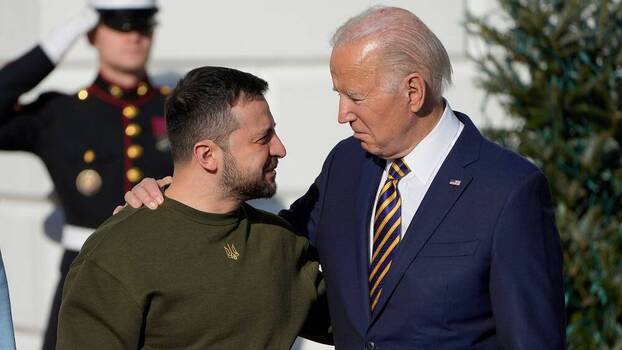
In the wake of Russia’s invasion of Ukraine in February 2022, the United States has backed the government in Kyiv with military hardware and economic assistance. The Biden administration has also done its best to constrain Russia’s ability to wage war even as it has been careful not to provoke a direct confrontation or spur escalation on Russia’s part.
John Feffer directs Foreign Policy in Focus at the Institute for Policy Studies.
US policy on Ukraine is not without divisions — within the administration, in Congress, and in the population at large. So far, these differences of opinion have had no major impact on administration policy. If the war continues into the 2024 election season, however, the Biden administration will face increasing calls from Republicans and a Republican voter base to reduce support for Kyiv.
There are two primary scenarios for how the war plays out in the future. Either Ukraine will follow the “Croatia scenario” by pushing Russian troops entirely out of the country and potentially setting into motion the political downfall of Vladimir Putin. Or, in the “Korean scenario”, the war will settle into a period of stalemate after the first year of surprising reversals.
But a stalemate will inevitably strengthen calls for a “diplomatic endgame” that will bring the combatants as well as the US and probably China to the negotiation table, perhaps through the mediation efforts of a more neutral party like Turkey.
For the time being, the Biden administration is backing the first scenario. The next few months will be crucial, as Ukraine makes another push to achieve the “Croatia scenario” through a second counteroffensive. It still has a chance, with US and European support, to achieve a just peace that upholds international law and punishes an aggressor for its illegal actions.
This backgrounder prepared for the Rosa Luxemburg Foundation’s New York Office explores the causes of the war in Ukraine and the actions of different actors in the conflict to date. It also lays out different scenarios for how the conflict may proceed depending on events both internationally and in the United States, and makes the case for a robust international diplomatic response whatever the war’s outcome.